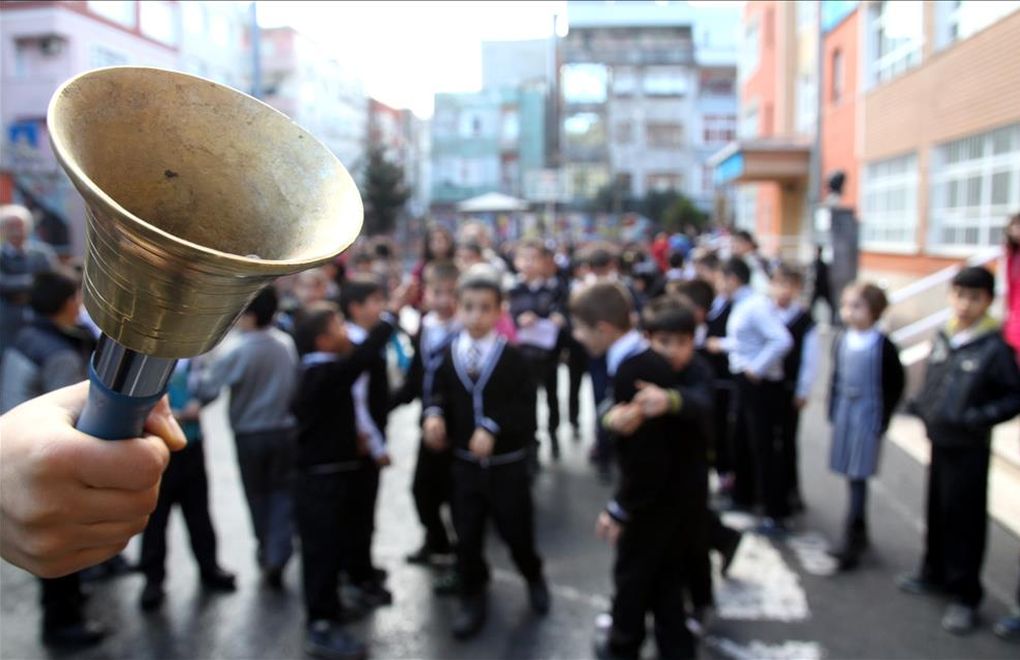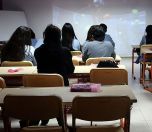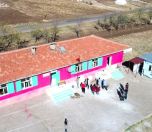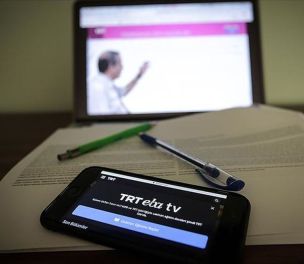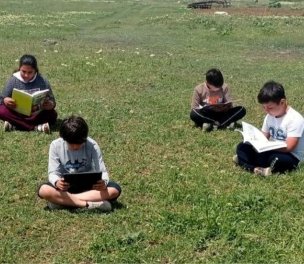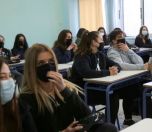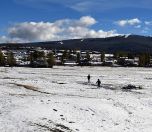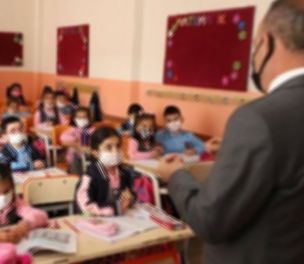* Photos: Anadolu Agency (AA) - Archive
Click to read the article in Turkish
On Monday (July 5), Minister of National Education Ziya Selçuk announced the plan to reopen the schools on September 6.
This decision follows the phase of normalization implied through the lift of nearly all novel coronavirus (COVID-19) restrictions. The decreasing level of the virus risk with the advances in Turkey's vaccination efforts allows the education to return from online back to face-to face mode.
Until now, of the 16 million people in Turkey, 90 percent of the teachers have also been fully vaccinated, according to the Education Minister.
The Health Ministry data shows that as of 7 pm on July 6, 54.5 million vaccine doses have been given since January 2021.
It is the first time since the initial closure that all schools in Turkey return to in-class education. Against this backdrop, we have compiled a brief timeline of the education in Turkey during the pandemic and an overview of the hardships faced by students in this process:
Education in times of corona: A timeline
March 2020: Initial announcement that schools in Turkey would close for one and universities for three weeks starting from March 16. Education should continue remotely from home via the Internet or television. However, the schools remained closed and the semester was declared over in June.
August 2020: Due to the resurgence in virus infections the previously announced reopening of schools starting with the end of August was repeatedly postponed.
September 2020: Only kindergarten and first year students returned to school for the short period of several days. Attendance remained not to be mandatory. Afterwards, education was continued online through the national broadcaster EBA. Classroom arrangements were reportedly adjusted to comply with social distancing and hygiene rules.
January 2021: Vaccination in Turkey for healthcare workers and the people over 85 years started. It was announced that starting from January 22, the 8th and 12th grade students as well as high school graduates were able to attend face-to-face classes at private coaching centers that prepare students for high school and university entrance exams. Attendance with masks and according to the social distance protocols remained mandatory.
Eventually, due to an increased number of infections, exams in January were not held face-to-face, as was announced in late December.
February 2021: Turkey announced that it started vaccinating teachers to prepare for face-to-face education.
March 2021: While COVID-19 restrictions tightened on March 30, the decision for in-class education was nevertheless based on local risk levels of respective provinces. Only in villages and frugally populated areas, the education continued in person regardless of the risk level.
May 2021: After several suspensions of face-to-face education at the end of the 'full lockdown' during Ramadan, it was announced that education would continue online once again. Pre-school educational institutions and the 8th and 12th classes were once again the exception.
June 2021: Secondary and high schools returned to in-class education as part of a 'gradual normalization' process.
The hardships of online education
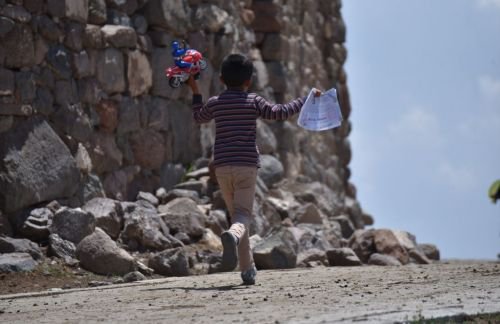
In his recent announcement, Turkey's Minister of National Education Ziya Selçuk has pointed out that 750,000 tablets have been distributed to facilitate or enable online education. He previously emphasized Turkey's lead in the organization of distance education.
In spring this year, Turkey introduced the TRT's Education Information Network (EBA). However, according to a report by the Education and Science Workers' Union (Eğitim-Sen), out of more than 18 million registered students around 4 million were deprived of their education, with the majority of the remaining students following their classes via mobile phone.
Alongside the lack of infrastructural possibilities of about 74 percent of the students, the difficulties in accessing online education were aggravated by inadequate class content and insufficient digital literacy. Hence, according to the report by the teachers union in April, the highest loss of education could be observed among the youngest students.
'Only 5 percent in Mardin access distance education'
Online education does not only increase the gaps between state and private schools, but also the disadvantages of citizens of rural areas: Particularly Turkey's south-eastern regions had to face immense challenges such as the frequent power cuts in Mardin and Yüksekova.
Further infrastructural problems accessing the EBA system and the "mobile support points" were not solved, which left further students in several regions without access to education.
While due to the lack of service in villages children sometimes even had to climb up mountains in winter to follow classes, students with easy access and a more convenient learning environment suffered from lack of physical activity and support, leading to a loss of motivation.
The number of diseased children in Turkey is comparably scant. But, deprived of their education, disregarding 750,000 new mobile devices, the students in Turkey remain to be a part of society affected severely by the pandemic restrictions. (BB/SD)




